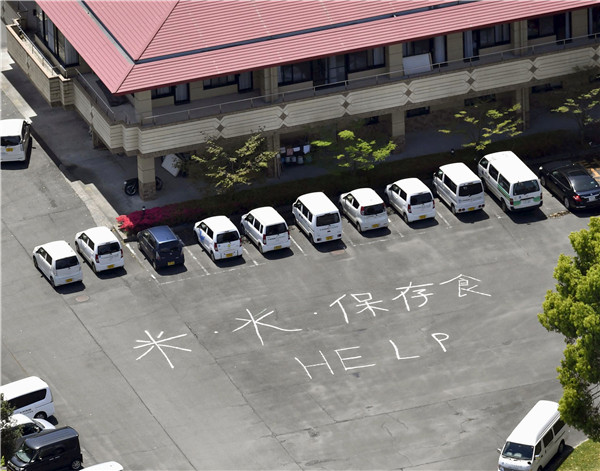Japan quake rattles markets as factories shut; survivors queue for food
(Agencies) Updated: 2016-04-18 17:40
About 30,000 rescue workers were scouring the rubble for survivors and handing out food to those unable to return to their homes following the quakes which struck Kyushu island from Thursday. The biggest hit near Kumamoto city early on Saturday.
"There are still missing people. We want to make further efforts to rescue and save people and prioritise human lives," Japanese Prime Minister Shinzo Abe told parliament, adding he aimed to declare the region a disaster zone to free up reconstruction funds.
The Nikkei stock index ended 3.4 percent lower, hit by a stronger yen and as investors weighed the impact of the disaster on manufacturers' supply chains and insurers.
Factories for major manufacturers including Toyota, Sony and Honda were closed, disrupting supply chains around the country.
Japan's atomic regulator declared three nuclear plants in the region safe, giving a degree of comfort to a country deeply scarred by the Fukushima nuclear disaster of 2011 that was sparked by an earthquake and tsunami.
All commercial flights to the damaged Kumamoto airport were cancelled and the bullet train service to the region was suspended.
Food was in short supply as roads remained cut off by landslides. Evacuees made an SOS signal out of chairs at a school playground, hoping to catch the attention of supply helicopters, Japanese media reported.
"Yesterday, I ate just one piece of tofu and a rice ball," said the mayor of one of the areas affected. "What we're most worried about now is food."
Of more than 500 quakes hitting Kyushu since Thursday, more than 70 have been at least a four on Japan's intensity scale, strong enough to shake buildings.








